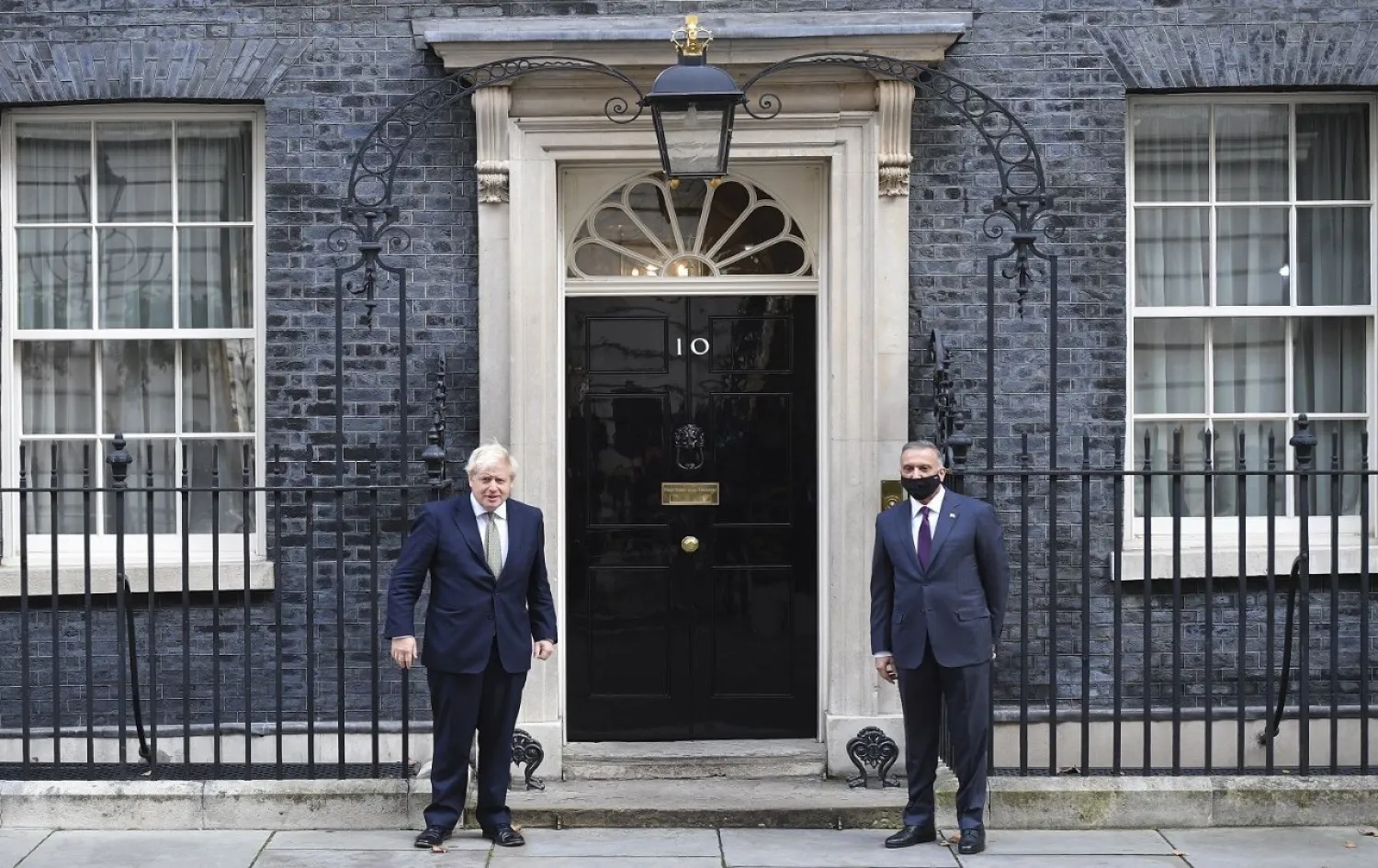Iraqi Prime Minister Mustafa Kadhimi and his British counterpart, Boris Johnson, have agreed on strategic cooperation between Baghdad and London, including on fighting terrorism.
Kadhimi met Johnson Thursday in the British capital, London, as part of his European tour that also included France and Germany.
A statement from the Iraqi PM’s office said the meeting discussed issues of common interest, the political and security situation in Iraq and the region, and developing relations between the two countries in a way that serves peace and local and regional stability.
The two officials agreed on more cooperation between Baghdad and London in combating terrorism, as well as in political and economic affairs, in light of the challenges facing Iraq due to the decline in global oil prices and the repercussions of the coronavirus pandemic.
Kadhimi also met separately with Prince Charles at the Clarence House and with British Foreign Secretary Dominic Raab.
During his meeting with the Prince, they discussed prospects for cooperation between Iraq and the UK, as well as some initiatives aimed at enhancing coexistence and protecting the environment.
The British government said in a statement that Kadhimi discussed in London Iraq’s main security and economic challenges in addition to the cabinet’s reform plan.
Johnson expressed his strong support to the Iraqi government.
Yassin Al-Bakri, professor of political science at Al-Nahreen University, told Asharq Al-Awsat that “Iraq continues to enjoy the confidence and support of the main European players.”
MP Aras Habib Kareem, Secretary General of the Iraqi National Congress (INC), said that Kadhimi’s trip comes at a time when Iraq needs a strong international partnership that generates promising economic opportunities.
Wisdom Movement MP Raheem al-Aboudi revealed that Kadhimi received pledges from France, Germany and even Britain on a soft loan of $5 billion to resolve the salaries’ crisis.









